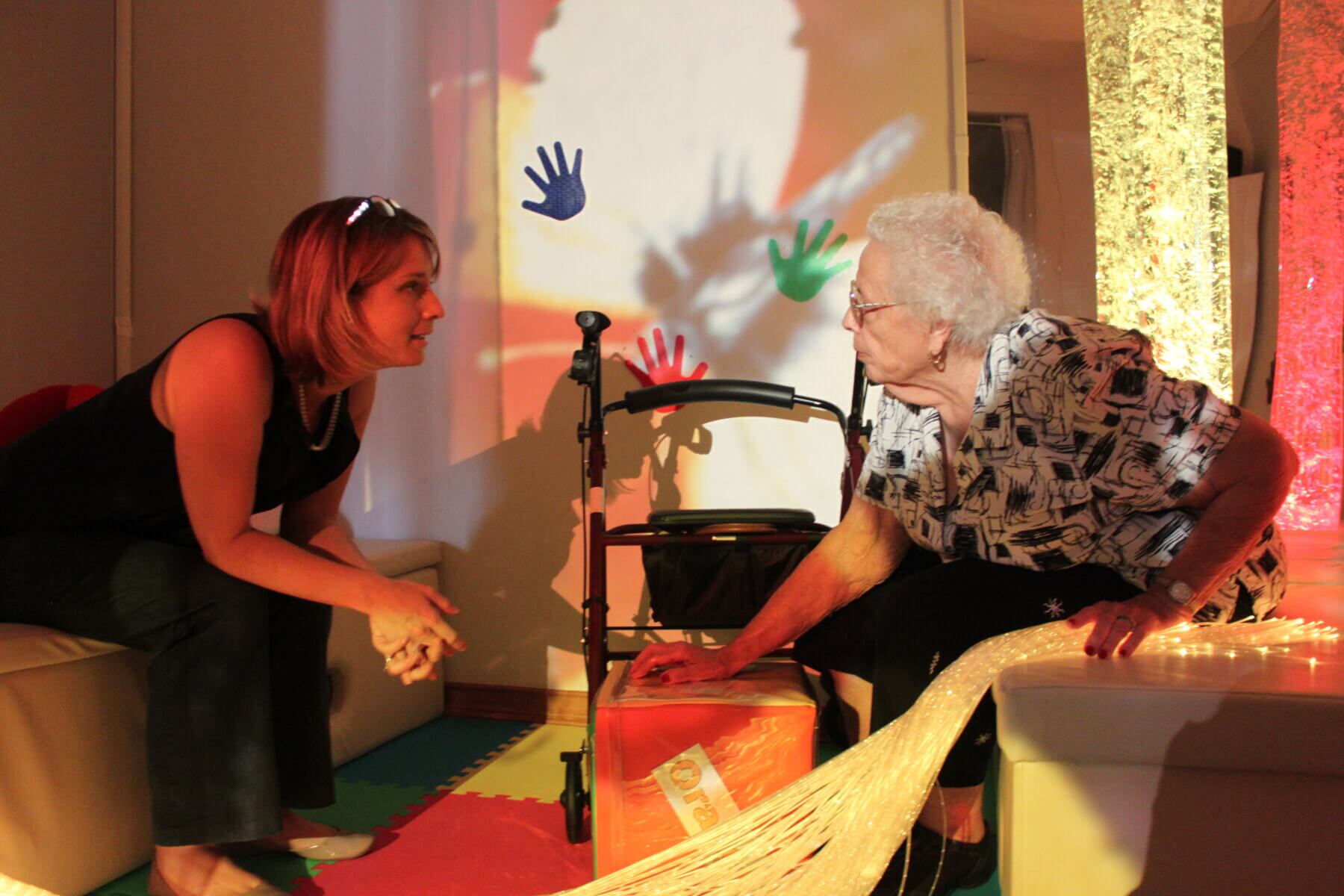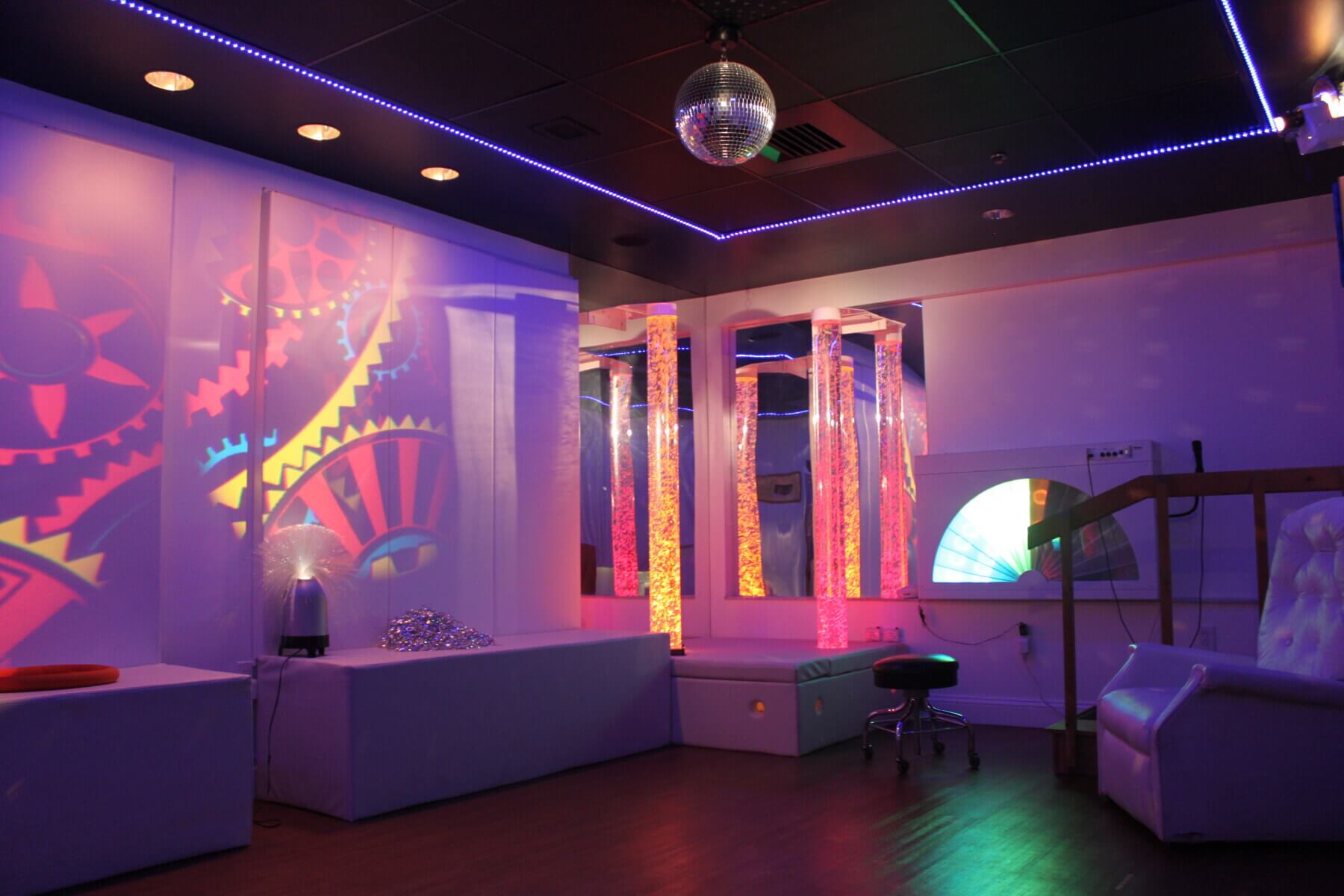
After publishing a literature review, we conducted an interview-based qualitative study using direct feedback from care teams on the clinical barriers that would prevent the use of MSEs for Veterans with dementia. Finally, we conducted an observational clinical trial on the effects of MSE intervention on behavior during assisted bathing.

On average, the research demonstrated that positive behaviors increased and negative behaviors decreased in the MSE. Medical staff can use the findings to improve MSE implementation, healthcare design teams can support better behavioral outcomes by incorporating sensory elements with environments where problem behaviors are known to occur, and families may be able to assist their loved ones with dementia by using MSEs at home.
Summary of Findings
- Multisensory environments may be impactful as non-pharmacological dementia therapy.
- At the VA, dedicated MSE rooms were preferred by staff respondents over mobile carts.
- Training, staff engagement, a clear maintenance plan and access to the MSE were critical barriers to uptake.
- MSE within the bathing environment may reduce problem behaviors and increase positive behaviors.
- Veterans seemed to favor the bubble tubes, aromatherapy and solar wall projector, which staff also perceived as being the most effective in reducing problem behavior.
Researchers:
- • Lesa N. Lorusso, Ph.D., Gresham Smith
- • Ronald Shorr, MD, MS, VA NF SG GRECC
- • Nam-Kyu Park, Ph.D., University of Florida
- • Sheila Bosch, Ph.D., University of Florida
- • Sherry Ahtentzen, Ph.D., University of Florida
- • Maureen Conroy, Ph.D., University of Florida